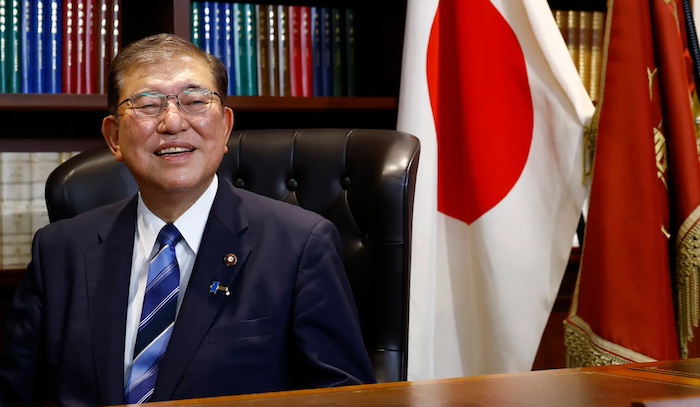
Japanese Prime Minister Ishiba has issued an apology for providing lawmakers with gift certificates amid increasing political pressure
Shigeru Ishiba, the prime minister of Japan, has expressed regret for giving parliamentarians gifts, which has drawn criticism that could jeopardize both his political standing and the adoption of the budget.
After acknowledging that he had given gift certificates to certain MPs from the ruling party, Japanese Prime Minister Shigeru Ishiba apologized on Friday. In addition to potentially delaying the adoption of the budget for the upcoming fiscal year, the incident raises political and economic uncertainty and threatens to further erode his already low approval ratings.
Speaking before parliament, Ishiba admitted that he distributed gift cards to 15 members of the Liberal Democratic Party (LDP) on March 3 prior to a meal using “pocket money.” According to him, the presents were a “show of appreciation” for their election-related work. But according to domestic media, each lawmaker received gift certificates valued at 100,000 yen ($673), which raised questions about political ethics.
In response to inquiries from parliamentarians from the ruling party, Ishiba stated, “I sincerely apologize for the mistrust and anger my action caused among many people.” Both opposition leaders and members of the LDP’s coalition partner have criticized the decision, with some calling for his resignation, despite his insistence that the presents were personal and did not break any laws.
The dispute has surfaced at a pivotal moment, as Japan’s economy is being negatively impacted by a growing trade war that US President Donald Trump started. Market analysts caution that investors may become even more uneasy due to political unrest. “Uncertainty over US and European economic policies is being heightened by market volatility.” However, Yusuke Matsumoto, a senior market economist at Mizuho Securities, stated that market participants might now need to pay closer attention to domestic political developments.
Passing the government’s budget for the fiscal year that starts in April has also been made more difficult by the problem. If the budget is not approved by the March 31 deadline, the government may be forced to enact a stopgap budget. The LDP has already had to make sporadic changes to the budget to please opposition parties. A delay of this kind would harm Ishiba’s reputation and interfere with financial planning.
The head of the LDP’s Diet affairs committee, Tetsushi Sakamoto, admitted that the dispute might make it more difficult to adopt the budget on schedule.
Given that an upper house election is scheduled for July, the timing is especially delicate. Ishiba’s coalition has a narrow majority, and scandals involving unreported gifts to politicians have already rocked his administration. His approval rating dropped from 44% in February to 36% in a recent NHK poll.
With growth stalling due to growing living expenses and declining global demand, Japan’s economy is still in a precarious position. Even while it grew by 2.8% annually in the last quarter of last year, economists predict that growth will drop precipitously to just 0.4%. Ishiba’s government’s stability and Japan’s economic prospects may see more upheaval in the coming months if he is unable to win back the public’s faith.
All Categories
Recent Posts
Tags
+13162306000
zoneyetu@yahoo.com



